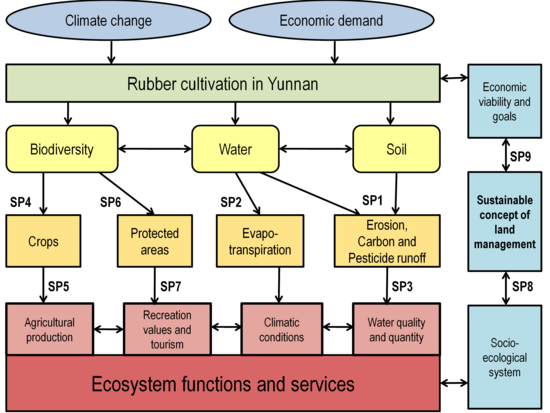Project goals
A suitable operational approach for the development of alternative land use concepts for rubber cultivation is the agro-ecological diversification of the system. This provides a conceptual framework for the stabilization of essential ecosystem functions, as well as the extension of the range of products for local farmers to minimize economic risks and to increase social stability.
Based on this, the projects approach needs to address and reach the following goals in three consecutive and overlapping phases:
1. To analyze and quantify major ecosystem functions affected by rubber cultivation and their effects on ecosystem services by applying and developing methods across different scientific disciplines concerning hydrology, carbon dynamics, biodiversity, and economic and socio-economic valuation in different subprojects.
2. The development of scientific concepts for alternative rubber cultivation resulting from the interdisciplinary data and models and its implementation. The concepts identify practical management options for the sustainable safeguarding of ecosystem flows and services including all disciplines and stakeholder participation.
3. To establish ecologically and economically sustainable concepts and systems of rubber cultivation, based on the evaluation of trade-offs and synergies between ecological and economic goals and providing baseline models applicable to other tropical land use, especially to production systems of renewable resources.



